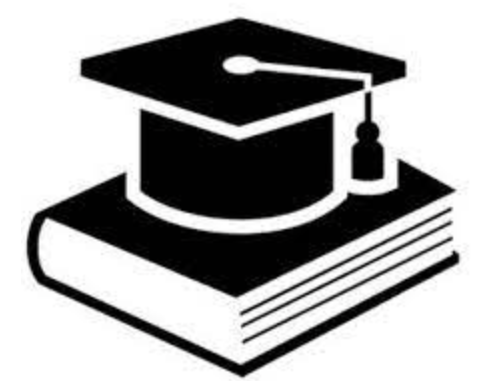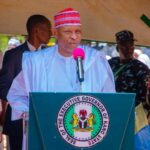The value of a degree lies not solely in the parchment and prestige it carries, but rather in how individuals leverage their education to shape their lives and contribute meaningfully to the society. What one does with their degree holds paramount significance, far outweighing the mere possession of the certificate. A degree serves as a tool, a gateway to knowledge, and it is the actions taken thereafter that determine its true worth.
Upon completing my secondary education, I gained admission to four distinct undergraduate degree programmes at University of Maiduguri. The offered programmes encompassed biochemistry, microbiology, general agriculture, and geology. My ultimate decision to pursue a degree in geology was guided by my personal interests, rather than any perceived superiority or future prospects of the course. I was well aware that the success of one’s degree is intricately tied to the individual’s actions and choices, not solely reliant on the nature of the degree itself.
Following my graduation with a degree in geology, my father imparted a valuable lesson, emphasising that the significance of the degree lies in the actions and decisions made post-graduation, highlighting the importance of what one does with the degree over the degree itself.
When presented with the opportunity to pursue a master’s degree, I sought to broaden my knowledge and expertise. I aimed for a field that would leverage my background in geology while venturing into a domain not exclusively centred around it. Consequently, I chose to enrol in a petroleum engineering programme. This field presented a unique blend of geoscience and engineering, introducing me to an entirely new engineering dimension, given my prior non-engineering background.
- NIGERIA DAILY: Ways To Avoid Going Broke In January
- Nigerian companies raise N1.5 trillion from commercial papers in 2023
Holding a master’s degree in petroleum engineering as a geologist, I believe I have acquired a more comprehensive understanding of the oil industry’s operations, seamlessly combining technical knowledge in geoscience for exploration with engineering insights for production. This amalgamation provides me with a holistic perspective on the oil industry, a viewpoint that, in my opinion, no other course combination could offer.
When presented with the opportunity to pursue a Ph.D., my primary motivation was the desire to face the intellectual challenge it posed, seeking to sharpen my thinking faculties. Intent on delving into an area that was both novel and globally significant, I explored interdisciplinary fields bridging my backgrounds in geology and engineering. This exploration led me to Carbon Capture and Storage (CCS), an emerging field with vast potential. The challenge lay in the fact that CCS was entirely unfamiliar to me; it had not been part of my education at the undergraduate and master’s levels. Despite this, I chose to embrace the unfamiliar, viewing my lack of prior knowledge as a potential indicator of the field’s significance.
Recognising the importance of mentorship, I consulted Professor Moses Ochonu to gauge the feasibility of delving into an uncharted field for my Ph.D. Professor Ochonu reassured me that a Ph.D. is a specialised degree, emphasizing that perfect alignment with previous degrees is not essential. He underscored the value of diversity in specialisation and versatility, encouraging me to view my Ph.D. as an opportunity to embrace new challenges rather than adhering too closely to familiar paths.
The decision to delve into the study of Carbon Capture and Storage (CCS) was made with conviction, and I never wavered in my commitment. Recognising that a Ph.D. is not a taught course in the United Kingdom, I took the initiative to educate myself on both the basics and advanced concepts of CCS. Immersing myself in extensive literature, I set the ambitious task of reviewing the entire field of carbon dioxide storage, resulting in the creation of an initial draft exceeding 100 pages.
While my supervisor provided valuable feedback, I sought additional expertise given the interdisciplinary nature of CCS, which encompasses geoscience and engineering. To address this, I reached out to an experienced geologist at British Geological Survey (BGS) in Nottingham, engaging in an in-person meeting to discuss my draft and meticulously noted his insights on printed sheets of paper. It is worth noting that BGS holds the distinction of being the world’s oldest Geological Survey.
Eventually I published my comprehensive paper in a prestigious journal. This experience proved instrumental in honing not only my writing skills but also my ability to synthesise vast information, respond constructively to diverse critiques, and build confidence in my subject knowledge. Reflecting on the publication, it brings immense joy to know that it received the 2020 award for highly impactful research, becoming the most cited paper for all co-authors in their research careers.
With more than 600 citations on Google Scholar, I anticipate surpassing 1000 citations within the next two and a half years. To further solidify my thesis, I produced two more papers – one garnering positive review just before my viva, and the other reviewed and published post-graduation, resulting in three Elsevier papers derived from my Ph.D. thesis.
I share these insights to inspire young individuals to recognise that navigating their chosen discipline is solely their responsibility. I have encountered classmates who frequently attribute their challenges to geology, labelling it as a field with limited prospects – a perspective that I believe is misguided. Blaming the perceived lack of prospects on the course of study is counterproductive. The potential for success lies within the individual’s ability to identify and harness the opportunities inherent in their field of study.
Regardless of the specific course, whether it be biochemistry, microbiology, or general agriculture, the key is to discern emerging issues within those domains and strategically utilise one’s degree to create value. As a scientist, I firmly assert that there are no inherently “bad” science subjects; the distinction lies in the choices individuals make. It is the proactive and strategic decisions one makes that ultimately determine the worth they extract from their chosen discipline.
In general, some individuals utilise their education as a catalyst for transformative endeavours. They channel their acquired knowledge and skills into creating positive change, whether in their professional fields or within their communities. These individuals recognise the support their degree provides and actively engage in the pursuit of meaningful goals, thereby extracting the full potential of their education.
On the flip side, there are those who, despite possessing a degree, find themselves waiting for an elusive stroke of luck or a mythical opportunity to come their way. Unfortunately, this passive approach often results in unrealised potential and missed opportunities.
For example, we may all agree that the attainment of a medical degree is universally recognised as prestigious, owing to the rigorous nature of the course and the exceptional intellectual capabilities it demands. The pursuit of medicine typically requires above-average brilliance, resilience, and an unwavering commitment to learning complex subjects. The prestige associated with a medical degree extends beyond academic achievement; it is deeply rooted in the profound responsibility of preserving and improving human lives.
The societal reverence for medical professionals is a testament to the inherent value placed on the field and the indispensable role they play in healthcare. But the prestige of a medical degree is not a guarantee of a clear and purposeful career path for everyone who holds it. While some individuals leverage their medical education to achieve remarkable success in various specialties, others may find themselves grappling with uncertainty about how to meaningfully apply their knowledge.
It is essential to recognise that the significance of a medical degree is not solely determined by the academic journey but also by the decisions and actions individuals take post-graduation. The path to success in the medical field involves not only obtaining the degree but also navigating the complexities of applying that knowledge to make a positive impact on individual lives and the broader healthcare landscape.
In summary, the impact of a degree is not predetermined; it is a canvas upon which individuals can paint their unique stories of achievement and contribution. It is not the possession of the degree itself that propels success, but the proactive decisions, aspirations, and actions of individuals that define the true value of their educational journey. By understanding that a degree is a tool for empowerment, individuals can take charge of their futures, making the most of their education and, in turn, shaping a more fulfilling and impactful life.
Aminu resides in Abuja and can be reached at [email protected]

 Join Daily Trust WhatsApp Community For Quick Access To News and Happenings Around You.
Join Daily Trust WhatsApp Community For Quick Access To News and Happenings Around You.


